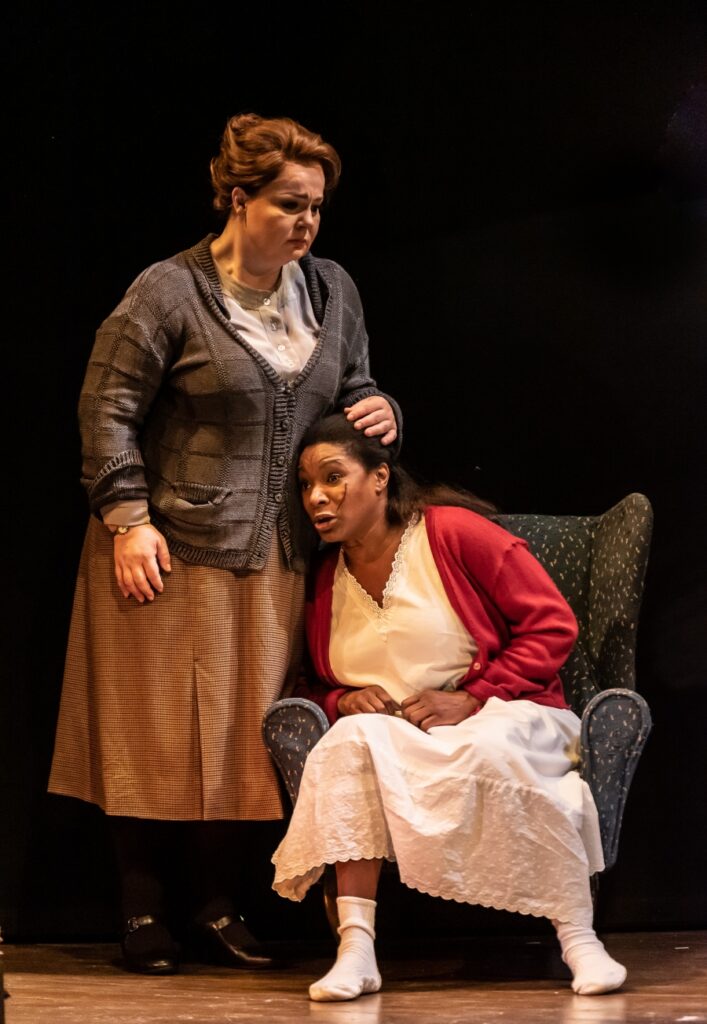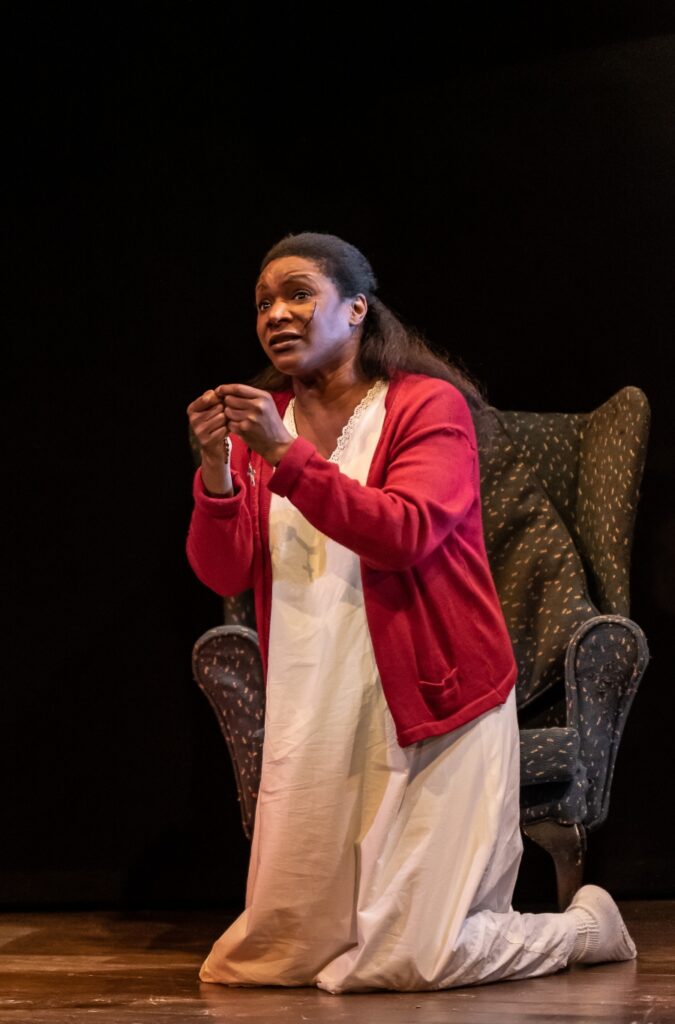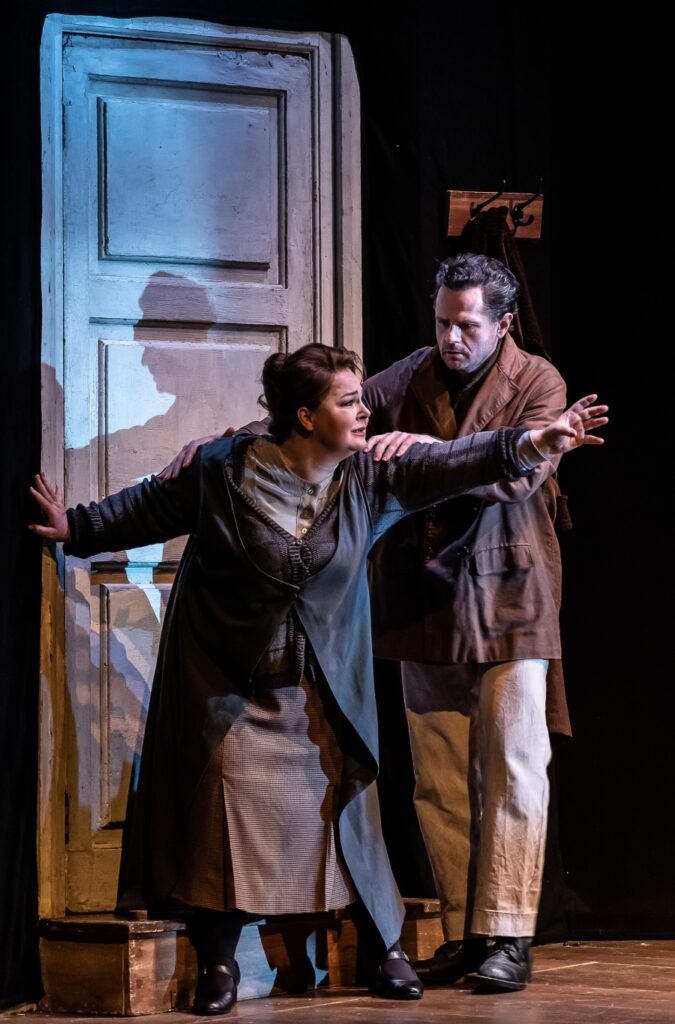
 (4 / 5)
(4 / 5)
The evening began with the orchestra conductor Tomáš Hanus wishing the performance be an island of humanity. Sorrowful and deeply humane, Leoš Janáček’s Jenůfa was the perfect opera to bring reflection upon the devastating Russian invasion of Ukraine.
The WNO’s Jenůfa touches the audience with the perfect balance of intensity and quiet sorrow. The interpretations of Elizabeth Llewellyn in the lead role and Eliška Weissová as Kostelnička stand out in this impressive production. The orchestra under the capable baton of Hanus conveys the complex beauty of Janáček’s music.

The story of Jenůfa is decidedly unpalatable to contemporary sensibilities. She is disfigured out of jealousy by Laca, the man who claims to love her, and abandoned by Števa, the man she loves and whose child she bears. Her own stepmother Kostelnička kills her child for fear Laca would not marry Jenůfa. Yet Janáček’s music makes one overlook the misogyny of the story and brings out a deep sense of humanity.
Elizabeth Llewellyn gives an intense and nuanced performance. The tonality of her voice adds a deep and pure emotion. Eliška Weissová’s powerful voice and dramatic interpretation capture well the complexity of Kostelnička, whose strong personality is diminished and consumed by her crime and sin.

Janáček’s Jenůfa is no epic tragedy but a journey taking us to a place of pain and compassion. The WNO orchestra is impeccable in conveying the moments of tragedy, quiet sorrow, and intimate love. Peter Berger gives a solid performance as Laca revealing a compassionate note and Rhodri Prys Jones interprets Števa convincingly. Of note is also Aaron O’Hare in the role of Stárek.
The production is let down by an unimaginative setting that emphasises the ordinary neglecting the tragic and religious dimension of the opera where the infanticide is not only a crime, but a sin. Yet there are a couple of good tableux: one when Števa is at one end of the stage away from the rest of the village that underlines his culpability and one when Kostelnička confesses her crime in front of the jury of the crowd.
The performance was well received by an audience already moved by the current tragic events in Ukraine.
